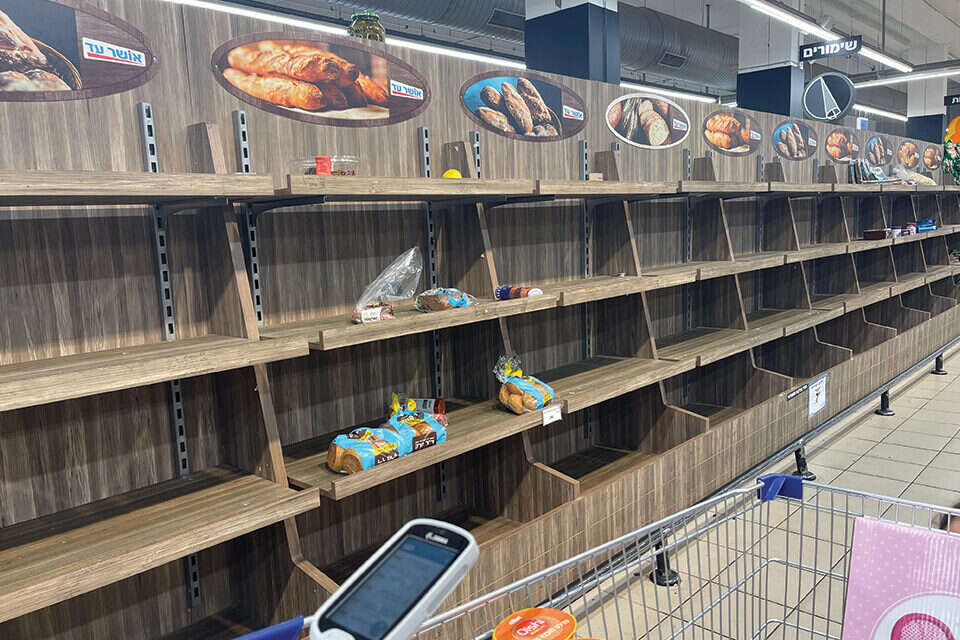Feeling in the pocket: the wave of price increases is already here, and it includes a wide variety of food companies that just last week announced price increases that reach up to 25%.
Among the companies, one can name those whose price lists were updated to February 1.
Among them are the companies Strauss, Shastovitz, Willipod and Ahva.
In the meantime, they were joined by Assem, Unilever, Vysotsky, Tempo (alcohol products), Barache and more, who announced an increase starting on March 1.
Unlike the previous wave of price increases, which sparked a "war" between the chains and the suppliers and created a shortage of shelves in certain chains, it seems that in the coming days the price increases will be reflected on the shelves.
Keinan Meman, VP of Keshet Tamim, tells "Israel Today" that "we are basically a different chain in the retail landscape, because our chain is based more on fresh products such as sausages and butchers, so we are less dependent on the large suppliers who raise prices.
At the same time, we are forced, in places where the supplier raised the price, such as Stovitz and Unilever - to make the necessary adjustments.
"However, we have many good substitutes that we import. In products that we have control over, we try not to touch the price. These are alternatives in terms of price and quality. We do not sell them as a private brand, but as a brand from abroad as it is, for example olive oil from Italy that is sold under the same brand name in Italy.
There are cases, as mentioned, that the supplier forces us to raise the price, and we have no choice and will have to adjust ourselves.
Of course there are always negotiations.
We do not categorically approve of the price increases.
Where it is possible to operate pressure cranes, we operate, absorb part of the increase and transfer part to the customer.
"There are still full"
"We are not one of the giant chains, so there is not always leverage and there is not always an option. We have suppliers on whom we have more leverage and less, and we act accordingly. The fact that the suppliers sent new price lists is 'nice and beautiful', but we are trying to reduce the aggressive increase To take care of our consumers with a minimum price increase, and where possible - then not increase at all. I think that in wartime, it would have been better for the suppliers to postpone the price increase."
Maman says that in the meantime there are still stocks and goods at the old price, and of course the price increase will be considered according to categories.
According to him, "If the mix provides the required profitability, we will not raise prices. If a category leads to losses or unprofitability, there will be no choice and a measured increase will be made. This is fresh, because everyone sends price lists and negotiates with the suppliers, and a decision is expected later.
However, we do not expect a wave of price increases."
"Regarding the olive oil we import, we have known about the shortage in the world for a long time, because the supplier warned us before the wave of price increases that there is a shortage in the world. On the other hand, there is also a limit to how much the Israeli consumer can ask for a liter of oil. We have to walk the seam between the product that counts - Quality and the price increases in the field, because the euro went up and the shortage also raised the price. We absorbed most of the increase and made an adjustment a few weeks ago because of the euro's price increase, but it wasn't dramatic."
Shopping cart in the supermarket, photo: Yehoshua Yosef
Yigal Dahan, VP of Trade and Operations at the Shefa Barket Hashem chain, adds that "the snowball of price increases has become enormous, a real tsunami."
If in the past there were moderate increases, today we encounter high double-digit increases and in a way that crosses most of the food and consumption categories.
There is no logic.
Someone here has lost control.
The consumer will not be able to hold himself.
I would like to hope that there is no cynical exploitation of the war here."
Olive oil (illustration), photo: GettyImages
Another senior official in the food industry adds and tells "Israel Hayom" that "We have not yet raised prices and we have not yet approved the price increases. It is clear that we do not want to raise prices, and in the end they are angry with us, the chains. The government has not raised the price of fuel and electricity now ? Raising everything. It's brazen to raise prices in a war, both from the point of view of the suppliers and the state. They could have waited another month."
Were we wrong?
We will fix it!
If you found an error in the article, we would appreciate it if you shared it with us

